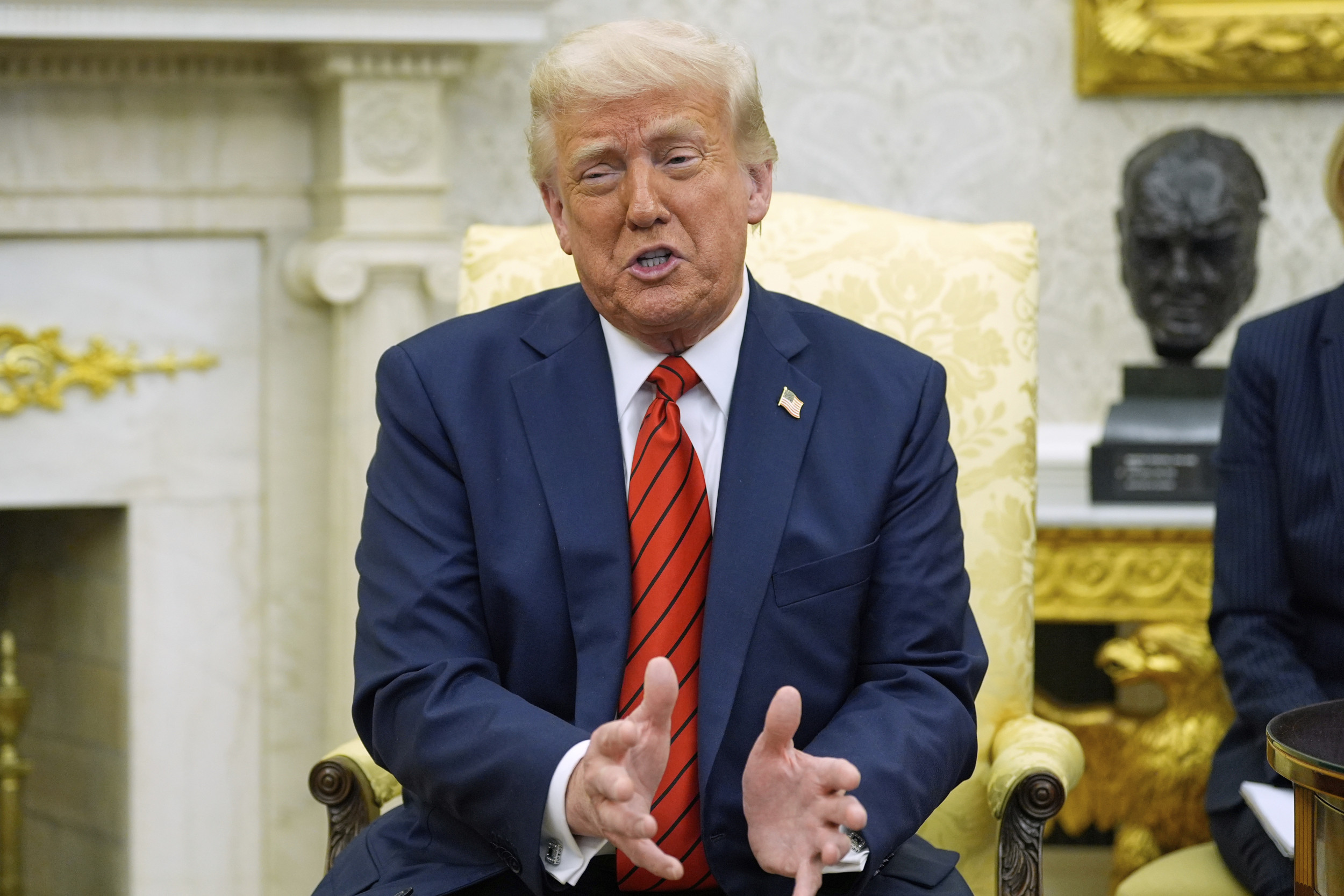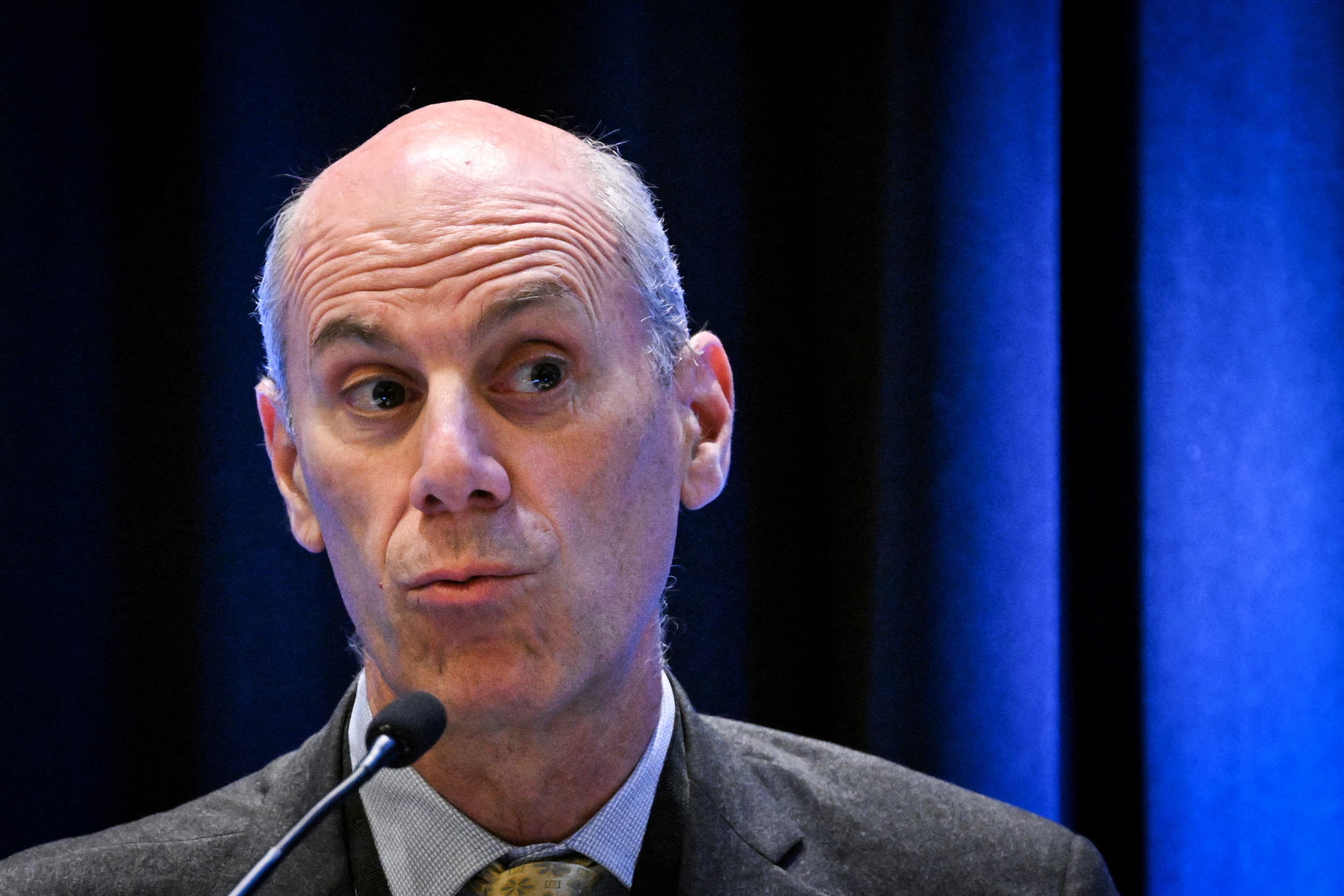🎙️ Voice is AI-generated. Inconsistencies may occur.
Republican Senator Ted Cruz has expressed his apprehension at the tariffs unveiled by President Donald Trump on Wednesday.
"Tariffs are a tax on consumers, and I'm not a fan of jacking up taxes on American consumers," the Texas senator told Fox Business' Larry Kudlow on Thursday. "So my hope is these tariffs are short-lived and they serve as leverage to lower tariffs across the globe."
Why It Matters
Trump's announcement has been met with firm opposition from America's global trading partners, with many vowing to respond with retaliatory trade measures of their own targeting U.S. imports.
In addition to economists and Democrats, a number of Republican lawmakers have also spoken out against the president's trade policies, arguing that they could negatively impact American consumers and producers, while also straying from the GOP's longstanding commitment to free trade.

What To Know
In his highly anticipated "Liberation Day" speech, Trump announced 10 percent across-the-board tariffs on all U.S. imports, along with reciprocal tariffs aimed at countries viewed as engaging in unfair trade practices with the U.S.. These targeted tariffs include rates of up to 34 percent on China, 20 percent on the European Union, and 24 percent on Japan.
Cruz acknowledged that the new tariffs could have the effect of pushing America's trading partners into lowering their own trade barriers, after which the U.S. could pull back on its protectionist policies, describing this possibility as "a great outcome."
However, Cruz said that a "bad outcome for America" would be trading partners "jacking up" their own tariffs, resulting in "high tariffs everywhere."
While Cruz's comments acknowledged potential benefits of Trump's tariffs, several sitting and former Republican lawmakers have voiced less equivocal opposition to the policy.
On Wednesday, the Senate passed a resolution to terminate Trump's emergency declaration on fentanyl trafficking, which forms part of the foundation for the tariffs on Canada. Four Republican senators—Susan Collins, Mitch McConnell, Lisa Murkowski, and Rand Paul—joined Democrats in support, but the resolution is unlikely to make it past the Republican controlled House or receive the president's signature.
Several economists have already warned that the new tariffs could worsen America's inflationary struggles, while pushing the country's economy closer toward a recession.
In a Thursday note entitled "There Will be Blood," JPMorgan chief economist Bruce Kasman said the risk of a global recession had been raised to 60 percent from 40 percent as a result of Trump's announcement.
What People Are Saying
Republican Senator Ted Cruz told Fox Business: "If the result of yesterday's announcement is a lot of our trading partners across the globe dramatically reduce the tariffs they charge on U.S. goods and services, and the consequence is the U.S. government dramatically cuts the tariffs that were announced yesterday, that would be a great outcome, that would be good for America."
But he added: "If the result is our trading partners jack up their tariffs and we have high tariffs everywhere, I think that is a bad outcome for America."
President Trump said in his Rose Garden speech on Wednesday: "My answer is very simple if they complain: if you want your tariff rate to be zero then you build your product right here in America because there is no tariff if you build your plant, your product in America."
Nada Sanders, professor of supply-chain management at Northeastern University, told Newsweek that the new tariffs would likely result in price hikes across the U.S.. She added that this would especially impact the import-dependent food and agriculture sectors, as well as consumer electronics, apparel and footwear, automobiles, and home appliances and furniture.
"The inflationary impact over the next year is perhaps one to two percent," she said. "Low-income households are expected to feel the impact most, as they spend a greater share of income on goods. "
Paul Miller, vice president and principal analyst at the business advisory firm Forrester, said in comments shared with Newsweek: "The latest tariffs imposed by the US, and the likely responses from that country's trading partners, mean unwelcome cost and complexity for manufacturers in the automotive industry and beyond."
What Happens Next?
While White House officials have said that the tariffs will remain in place and are non-negotiable, Trump told reporters aboard Air Force One that he would be open to negotiations if countries offered the U.S. something "phenomenal."
About the writer
Hugh Cameron is Newsweek U.S. news reporter based in London, U.K. with a focus on covering American economic and business ... Read more



